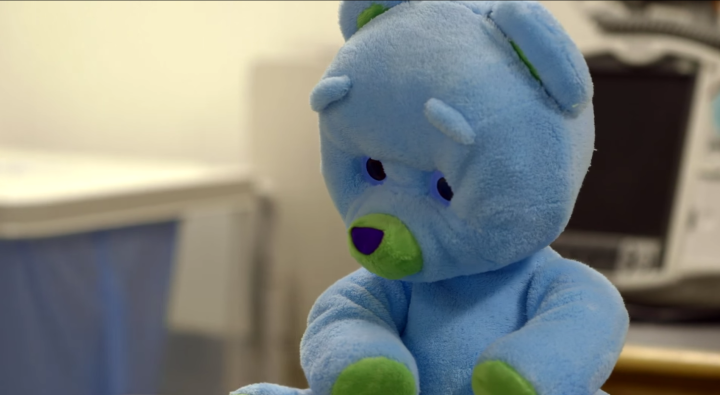
Ultimately, Huggable’s goal is to make children happier. Doctors are increasingly recognizing the importance of a patient’s psychological well-being, especially when it comes to children. Dr. Peter Weinstock, the director of the Simulator Program at the hospital, told the Times, “What we do know is that children who are happier, who feel better, it can have a big effect on healing.”
Huggable, which is described as a “high-tech puppet,” essentially brings cartoons to life by interacting, talking, and playing with sick children with the help of a remote control. And as Gizmodo points out, as Huggable continues to develop, the hope is that the robotic teddy bear could adapt to changing situations and different emotional scenarios in order to make children feel better faster.
Dr. Cynthia Breazeal, who leads the personal robots group at M.I.T.’s Media Lab, told the Times, “We could someday see this as a standard of care, where every child who comes into the pediatric hospital might get something like this. It’s not only the health and emotional and recovery benefits, but also logistical and financial, improving efficiency to the overall health system.”
Already, the hospital has invested a cool half million dollars in research surrounding social robotics, which includes the Huggable program. If it works, teddy bears may never be the same again.


